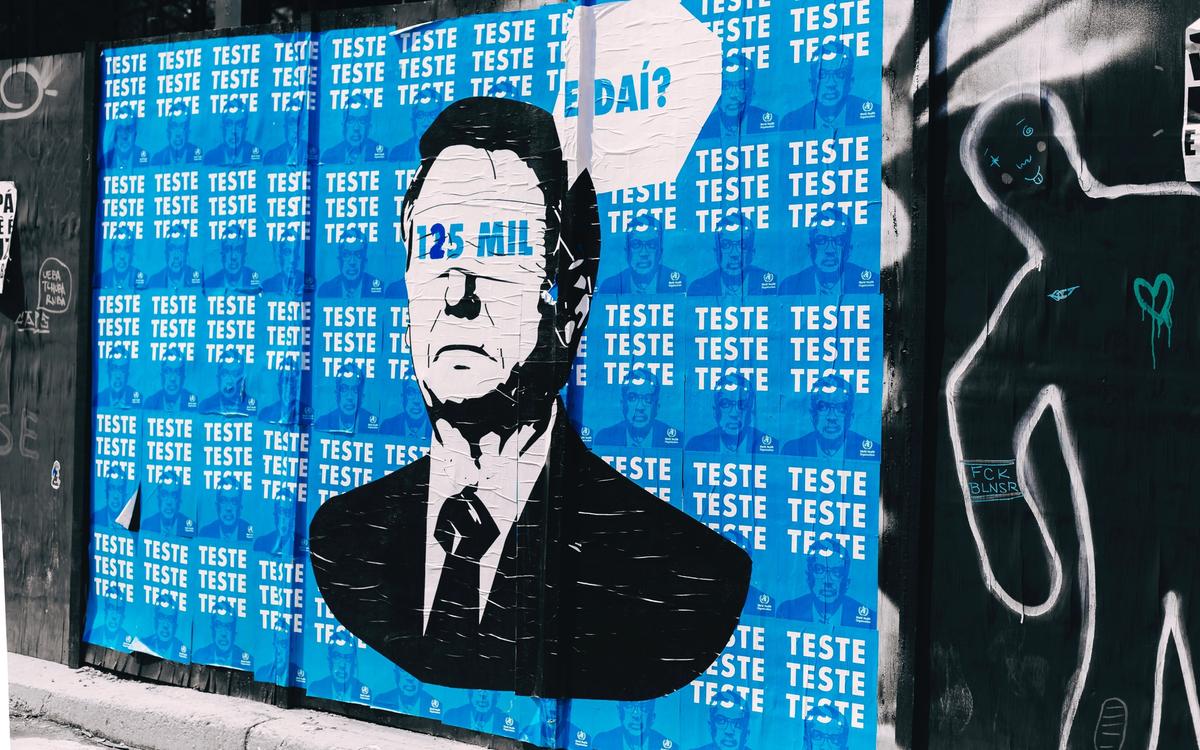As Brazil experiences a grim resurgence of coronavirus cases, with a record toll of more than 1,900 dead reported on Tuesday, the country's government has issued an ordinance stating that it will temporarily stop reviewing proposals for federally-funded cultural projects that would be held or produced in states or cities that have not yet lifted coronavirus restrictions.
The order was issued on 5 March and is slated to be in effect until 20 March, but could be “extended or suspended, depending on whether or not the restrictive measures are maintained”. It states that projects that would require interaction with the public must be held in locations “where there are no lockdown restrictions, no curfew and no other actions that would prevent the project from being carried out”.
While the order does not give any specific reasons for the decision, some argue that it is another aggressive action by the country's far-right president Jair Bolsonaro against Brazil's cultural sphere. The order deals with projects funded by a statute called the Rouanet Law, a federal funding scheme with a $2.3bn annual budget that is the main source of support for many cultural projects in Brazil.
Bolsonaro has repeatedly criticised the scheme, claiming it enables corruption. He previously suspended some projects that his cabinet deemed controversial, including proposals for television shows dealing with LGBTQ+ themes. And he has worked to decrease the budget allotted to each project, slashing the cap to around $175,000 from around $1m.
The order was signed by André Porciúncula, a military police officer who was appointed to the role of National Secretary for Promotion and Incentive to Culture by Bolsonaro last year. Bolsonaro is known to elect loyal supporters and like-minded candidates for his cabinet, and Porciúncula has previously echoed the president’s stance on the coronavirus, calling safety restrictions such as closures “criminal measures” that will economically devastate Brazil.
Porciúncula shared an article on social media from the Folha de São Paulo by the Brazilian culture journalist Mônica Bergamo that deals with the order. “How do you want to realise events with these restrictions?” Porciúncula wrote. “At least be minimally coherent—if we must stay home, then there is no budget for projects that require gatherings.”
He added: “I believe the ordinance is a fundamental administrative measure, since it would be irresponsible to release public funds for face-to-face cultural projects that cannot be carried out due to state and municipal restrictions.”
The ordinance would effect most major cities, which last week reinstated stringent restrictions as cases of the coronavirus spiked, including the closure of event venues. The restrictions could be lifted next week but are likely to stay in effect if infections do not decrease. Brazil has struggled with inoculating its population against the coronavirus, with less than 1% of the country receiving their first dose since vaccines became available in January.
This week, the federal deputy Jandira Feghali filed a motion with the Brazilian parliament to counter the effects of the ordinance, which she called “an evident retaliation to state and municipal managers who stand with science, [and] a confrontation amid a time when Brazil reaches a record level of contamination and deaths”.
“The measure threatens culture, health and the Constitution in an authoritarian and unjustified way,” she adds. “We understand that this is unacceptable and does not deserve to prosper.”


